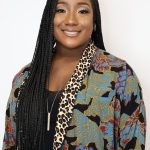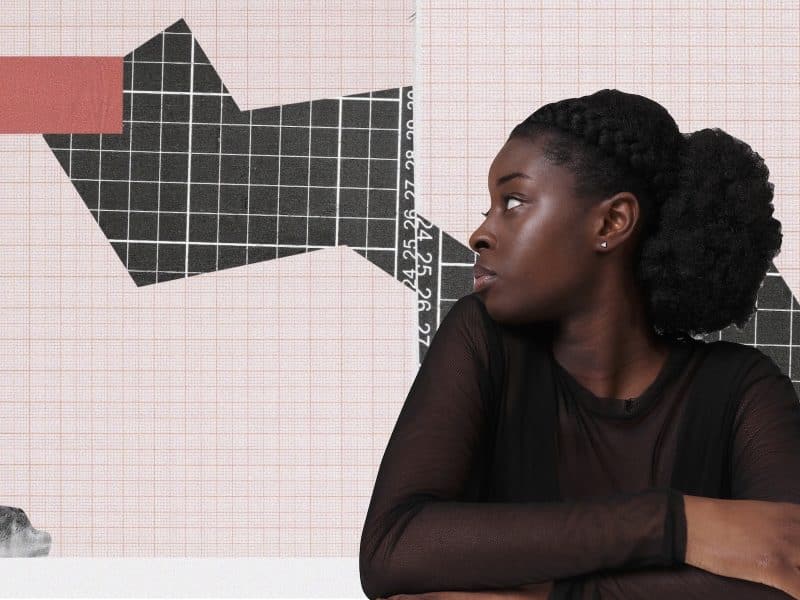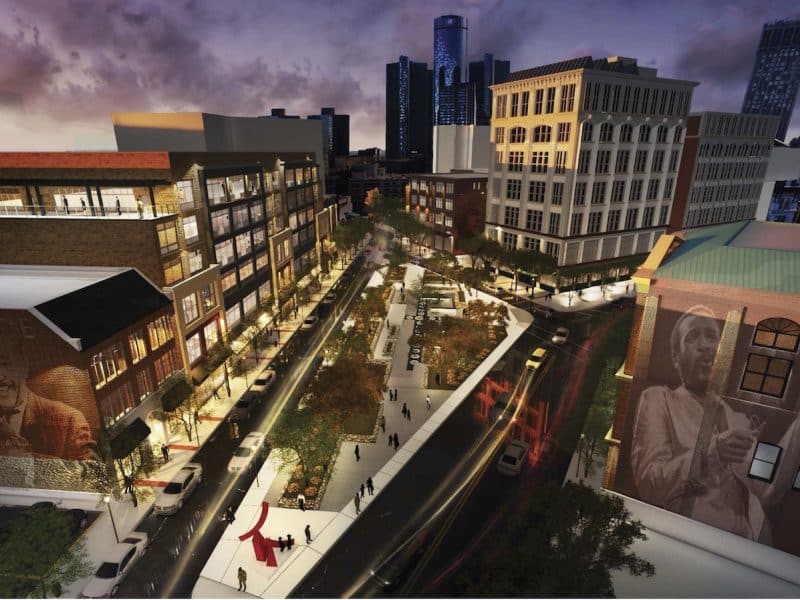“Elevate Your Voice” Entrepreneur Spotlight: Jason Dixon
"…we know that if we don't learn to work together and trust each other and create that system, because we have systems against us, we need to be smarter to create systems for us working together," says Jason Dixon, founder of the Inkster-based Strategic Alliance Community Development.
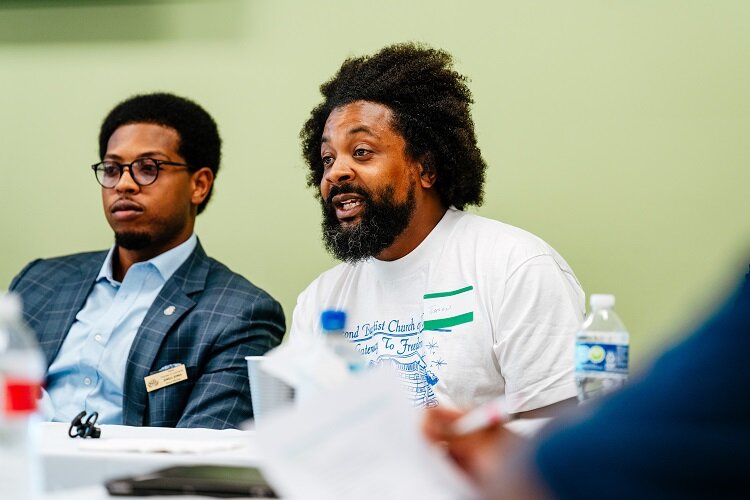
This article is part of a 12-part profile series that seeks to capture the thoughts and ideas of entrepreneurs in Inkster, Dearborn/Dearborn Heights, Ecorse, and River Rouge. This series is made possible through the New Economy Initiative’s “Elevate Your Voice” campaign, designed to help inform entrepreneurship support, and amplify authentic voices in the small business ecosystem. This profile features Jason Dixon, founder of Strategic Alliance Community Development, based in Inkster, Michigan.
Can you share a little bit about your business?
Strategic Alliance Community Development was established in 2018. Our goal was to bring 1GB to 100GB of fiber optics to low-to-moderate-income communities. And what that does, number one, fiber optics, fiber to the home, increases the value of the house by about $5,000. The other thing is it gives the homeowner or renter the flexibility to work from home, and really be a part of the global economy. And we wanted to make sure we could do it for an affordable rate. So, we reached out to W.K. Kellogg Foundation, Flagstar Bank and Nokia, the manufacturer of fiber optics connectivity products. We partnered with Nokia because they’re the only manufacturer that has actually done fiber to the home where it’s recognized. And they did it in Chattanooga, Tennessee, which is a Rust Belt community similar to the metropolitan area. And right now their economic impact from broadband is like $2.8 billion over a decade. We wanted to replicate that process, so we can focus on reducing the wealth gap in these low-to-moderate income communities, and also replicate it across the state, and then across the country.
What would you say inspired you to plant business roots in the Inkster community?
We chose Inkster because it has a long history of abolitionists, the opportunity for Black people to excel. It was really the place in the 40s and 50s where Black people migrated, prior to 1968, because the Fair Housing Act wasn’t ineffective at that time. And Black people had a space in Inkster where they could thrive. And we wanted to continue that legacy with this new economy, with the Internet. And that’s why we decided to go to Inkster, and work with the Black community. The location that we purchased is their old City Hall. It’s going to be a multifaceted, technology facility, once we’re done with it, where you’ll have the training from horizontal and vertical for a broadband. We’ll also have an opportunity to have a daycare for the folks who are participating in the training sessions. And, on the third floor, it’ll be a workspace for federal contracts and contracts with major corporations looking at minority-owned companies.
How have you been able to find or access capital needed for your business?
The start of us accessing capital was really during the beginning of the pandemic. We were actually doing barbecue dinners and talking about the community. It was called Building Barbecues. We would have folks come into different parts of the community in the City of Detroit, and we would build with the community through our barbecues. And that drew us an opportunity to get an audience to start talking about community development. And because broadband is a magnet for economic development, that talk that we had with the Building Barbecues really spun off, and we had an opportunity to talk to Flagstar Bank. We had a list of things we wanted to do in low-to-moderate income communities that weren’t happening like Section 8 to home ownership. So we decided to have a conversation with the Inkster Housing Commission, and we got the leadership, the mayor, state reps involved, and we talked about how we can have a process to make Inkster a thriving economic hub for this part of southeast Michigan, and Flagstar came to the program. We actually had Chauncey Billups, who’s been on our team since its inception, because he’s the one that encouraged us to really do some things in low-to-moderate income communities in Michigan, and he would support us. After we got some traction, during the pandemic, we had a series of Zoom videos with different philanthropists, and Dan Kellogg picked us up as a national partner because he was working in Mississippi, Milwaukee and Tennessee, at the time, talking about broadband. So that’s how we got our first start of funding.
What are your current business goals?
Our current business goal right now is to make sure that we are utilizing state-of-the-art equipment, new technology that most of the telecommunications companies are not using because their markets are so big, and if they have some glitches, it could take out some of their stuff, some of their customers. So we’re looking to use the newer technology to build it out so it can be more efficient for customer service and faster service at a cheaper rate for these low-to-moderate income communities. That’s our biggest goal. The next goal, I think, is really to make sure that minorities, Black and brown people, men and women, gay, straight, lesbian, etc. are empowered by the new technology, the new way that we have an opportunity to participate in business, to bring our communities to an even playing field when it comes to economics. Because through technology, you can reduce that wealth gap, and I think a lot of people are starting to understand that. And one of the opportunities is to have a training facility where you can train folks and have implementation right away, so they’re not waiting. And since the whole country is getting rebuilt with broadband and fiber optics, I think it’s a good opportunity to have this training facility in our community at this time.
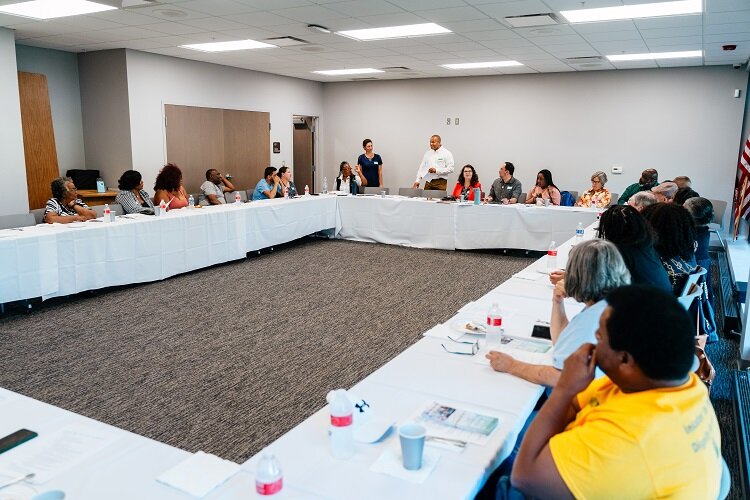
What would you say are some resources you need to achieve those goals?
Right now we’re working with the state appropriations office to appropriate dollars for the training facility to make sure as a regional project that, number one, Inkster is viable because they don’t have a school system and they also don’t have a major industry. It’s mostly homes. So with this type of injection of of cash from the state and supporting the training facility that’s needed, that doesn’t exist in the country of this nature, will really stand Inkster up and give the Black and brown communities some hope because they can see, hey, this is a model that we can use to thrive, to improve home ownership and improve workforce development in these low-to-moderate income communities. It can create an opportunity for taxation because these communities are pretty much the only ones that have large swaths of vacant land for new homes and for manufacturing.
If someone came to you and gave you the best resource guidance for your business goals, what would support from that resource look like for you?
Looking at how the markets run, I think the top resource that I would look at is partnering with a hedge fund, a BlackRock, some type of fund that we can expand and multiply this across states. And they have the money and the time in their portfolio to see the benefit of having a nonprofit manage a telco system in these low-to-moderate income communities.
Fill in the blank: ____ has been a really good resource for me. Please share how or why.
So Chancy Billups and other NBA players, Ty Lue, Dale Davis, Darvin Ham, because they all come out of low-to-moderate income communities, have been a wonderful resource for helping us connect the dots. Because, you can understand, as a young Black man talking about telecommunications for a $20 million and up project coming to one of the less economic-driven communities in the state, maybe one of the ones in the country, to bring that type of opportunity with Nokia, a $37 billion corporation, is phenomenal. And for them to be able to stay on task and on team every time we want to have a meeting, to show up for that Zoom call, for us, that shows that Black men can come together, and with the mayor of Inkster and the state rep, Jewell Jones, at the time, it really showed us that Black men can come together, have a discussion, create a goal and accomplish it. Our goals were going really, really well, until it was time to bring the state along, that hierarchy, and everyone doesn’t believe in Black people. And that’s the problem that we’re having.
What has been the biggest challenge you’ve faced in starting, growing, or sustaining your business?
Because we have these large organizations with us, we don’t always believe in each other, no matter what position you’re in, especially if it hasn’t been done with someone who looks like us before in this time and in this market, it’s hard for the implementation because right now in the state office, we don’t have anybody really from the Inkster area that looks like us that’s championed this cause. We’ve already aligned ourselves with the top players in the telecommunications realm for an opportunity for the 22nd century, and they’re not really respecting us in that space. I mean, Goldman Sachs has talked to us, and we’ve talked to a few people from BlackRock, and Flagstar is a champion, a real true champion, and Kellogg’s is a true champion, but they say, ”Where’s the state at?“ So when people say, “Where’s the state at?“, and then you go talk to the state, and they know this is a need for our community, and they talk about the Black and brown folks. That’s the part that bothers me.
If you met a new business owner in the community, what is the first resource you would recommend connecting them with to help them succeed within your city? Who would you connect them with outside of your city?
The SBA. The Small Business Administration, and then also, something I usually do, if I’m going to open a business up, I’m going to go work for somebody for free, that’s been in that business over a decade because it takes a decade really to know the true ebbs and flow of a business. And I would suggest to them, hey, this is what you love. Let’s see what the person who’s been in business a decade that didn’t have the resources, didn’t have the technology that we have today, and go volunteer on Friday, Saturday and Sunday to show that your dedicated, and also to create your own story, so when your founder hears that, they can say, okay, you’re truly dedicated, and they can actually interview that person that has had that business for a decade, and that might give you an opportunity to partner with that person who has that business for a decade to reduce risk. So that’s what I would do.
What would you say is a shared issue, concern or challenge among the entrepreneurs and small businesses in your community?
In the City of Inkster, I think it’s trust. I think the same way that Martin Luther King Jr. had psychologists and sociologists and social workers come to Montgomery, Alabama, the Delta Mississippi Delta, back in the 60s, to talk about nonviolence and to get folks to be able to sit at those counters and get their behind whooped to pay their money. I really believe that we should have that same intention when it comes to Black people working together. Because we know that if we don’t learn to work together and trust each other and create that system, because we have systems against us, we need to be smarter to create systems for us working together, and I think when that comes, when the UofM, the Wayne State, the Oakland universities come together and say, hey, we’re going to start putting on these programs to teach the low-to-moderate income folks how to work together with the resources that they have to be great. I think that will change the landscape, not just in Inkster, but across America.
